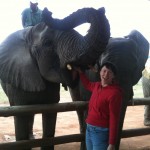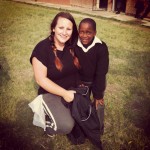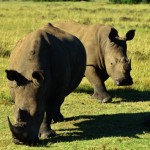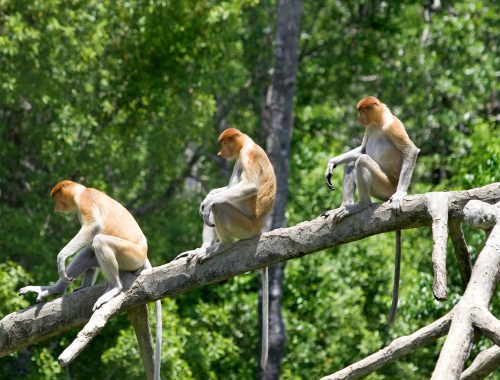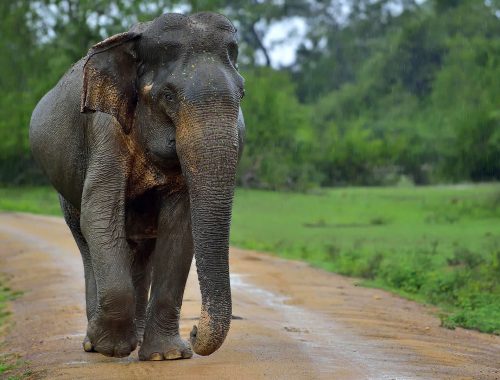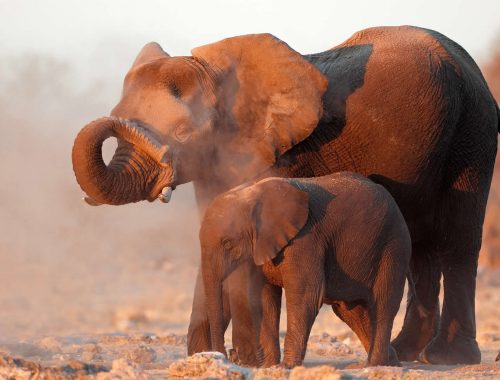Take a trip on the wild side on this exciting African conservation experience. Even better than a safari, this project immerses you fully in the role of an assistant game ranger on a private Big 5 game reserve. Work alongside some of the world’s most iconic animals as you help out around the reserve to promote the survival of African flora and fauna – think lions, elephants, zebra, giraffes, monkeys, rhinos, buffalos, cheetahs – and more!
Duration: 1 – 12 weeks
Dates: Arrivals throughout the year.
Arrival day: Monday
Return day: Saturday or Sunday
Eligibility: General level of fitness required
Age: 17+
Share with friends...
Highlights
- Taking your first game drive and seeing your first animal – and then another, and another!
- African sunsets – a beautiful end to a wonderful day
- The moment when a herd of elephants wanders by as you work
- Beaches, bungees, shark cage diving, swimming, exploring – need we say more?
- Add a conservation career course to support and apply for jobs after your trip
This beautiful reserve is home to Africa’s impressive Big 5 – elephants, lions, rhino, Cape Buffalo and the elusive leopard. In addition to these famous African icons, you can also see zebra, hippos, giraffes, monkeys and baboons to name but a few. The reserve is at the forefront of conservation, and over 20,000 trees per year are planted to promote the many different habitats found here. This is the perfect place to experience wildlife conservation in South Africa, a country which is renowned for its amazing animals.
Joining the game reserve as a volunteer gives you an experience which is even bigger and better than a safari. Every day you can experience the thrill of seeing lions dozing, elephants grazing and hippos lounging in the mud as you head out to tackle the day’s tasks.
This hands-on conservation experience gives you the opportunity to work with animals abroad and promote wildlife conservation in South Africa. In addition to its leading role in African wildlife conservation, the park works closely with the local community, where you can contribute to a worthwhile scheme helping local school children.
No day will be the same, as life on a reserve is very changeable. The project runs from Monday – Friday, with weekends free. Tasks that you might help out with can include, but are not limited to:
- Tracking and monitoring wildlife
- Completing game counts and wildlife surveys
- Sunrise and sunset game drives
- Capturing and relocating wildlife
- Tree planting and erosion control
- Working in the animal rehabilitation area
- Clearing non-native vegetation from the reserve
- Fence patrols, repairs and maintenance
- School community projects and feeding schemes (during the school year)
Are you looking for paid work in the conservation sector after volunteering or interning? Oyster have teamed up with our friends at Conservation Careers who support people to find paid work in conservation following study or a career change. You can add their fantastic and flexible course to your volunteering trip with Oyster. Your Oyster experience will help add interest to your conservation resume as an eye catching addition to your job applications in future!
- On-site accommodation in shared single-sex dormitories
- Single-sex toilet and showers
- Lockers provided for your belongings
- Access to swimming pools, tennis courts and gardens throughout your stay
- Basic dormitory accommodation provided in Port Elizabeth for participants wishing to explore on the weekend (no extra charge)
- Food is included throughout your stay at the reserve
- Three meals per day prepared for you by local cooks
- Breakfasts include cereals, bread, jams, tea, coffee and sometimes cooked options
- Lunches and dinners are buffet style and comprise of mainly western, African and Asian food
- If you choose to leave the reserve at the weekend, you will need to provide your own food
- Most dietary requirements can be catered for
- Your programme will keep you busy at the reserve from Monday to Friday, with weekends free for study, relaxation and exploring
- At the weekend many participants choose to head in to Port Elizabeth to enjoy the sea, surf and sand, as well as to use it as a base from which to explore the area
- Alternatively, you are more than welcome to remain at the reserve to enjoy the fantastic facilities there and simply relax
- We can arrange a week-long Garden Route tour after your time on the project.
- Follow the link to find out more about the Garden Route Tour.
Travel arrangements
Airport: Port Elizabeth (PLZ)
Arrival day: Monday before 17:00. You will be collected from the airport and transferred to the reserve
Departure day: Saturday after 12:00 or Sunday at any time
Supporting You

The team of coordinators on the reserve will be your support network whilst you are on this project. Get to know the game rangers as they teach you their craft and get you involved in assisting them on the project. The full-time team who work in the offices to coordinate your project are also there as a helping hand and can offer great advice on things to do on your weekends.
Included
- Access to your own personal ‘My Oyster’ account – our online portal where you can find out much more about the program and manage your booking
- Dedicated contact time with an experienced destination manager to discuss the project, answer any of your questions and for us to find out more about you
- Help and advice from our UK office before arrival and whilst you are away
- Pre-departure information covering medical, safety and project advice
- Gold level, 24/7 Pharos crisis management and incident support cover
- Financial protection: ATOL (if we book your flights).
- Thorough orientation on arrival
- In-country support
- Accommodation (see the ‘accommodation’ section above for details)
- Advice on visa requirements
- Oyster plants a tree in Africa with TreeAid to help reduce the impact of global carbon emissions
- Airport collection
- WiFi
- Food full board at the reserve
- Bed Linen
- Weekly return transport to and accommodation in Port Elizabeth
- Return transfer to Port Elizabeth at the end of your stay
On your return:
- Welcome home pack
- Certificate of Recognition (on request)
- References (on request)
Not Included
- Flights – as an ATOL bonded company, Oyster can book flights for you
- You need a valid passport that meets the requirements of the country you will be travelling to
- Insurance (covering your time with Oyster and any planned independent travel)
- Any costs associated with changing your return flight date if you need to
- Independent travel costs
- Home country travel costs
- Spending money for additional trips, food and entertainment
- Food when not at the reserve
More Information
This is an amazing opportunity to get close to some of Africa’s most magnificent species in a beautiful location. It goes much further than simply doing a safari, and involves total immersion in the life of a game reserve. Rather than simply witnessing the Big 5 and other wildlife, you will be actively working alongside them.
The typical day starts at around 9.30am and comes to a close at around 16:30 / 17:00. An example itinerary:
08.30 – 09.30 Breakfast
09.30 – 13.00 Morning tasks
13.00 – 14.00 Lunch
14.00 – 17.00 Afternoon tasks
18.00 – 19.00 Dinner
Whilst late-availability is possible, we would advise booking as soon as you can to guarantee your ideal dates. Our projects are very popular and spaces can fill up several months in advance, especially for the months of June to September.
On the same reserve as the Big 5 project there is also a game ranger course. Whilst these two options incorporate the same daily working activities out on the reserve, on the game ranger course you will learn a lot more about the theory of being a game ranger and how to put that theory into practice. The course lasts for 8 weeks at set times of the year. It is great for people who are keen to work with animals, build up some work experience and come away with a deeper knowledge of nature, as well as a recognised qualification.
In addition to the general conservation programme, the game ranger course covers:
- Practical and theoretical training required to become a qualified field guide
- Insight into geology and astronomy
- Knowledge of weather and climate
- Learning about basic ecology
- Animal identification and management
- First Aid level 1
- A written exam is completed at the end for your FGASA (Field Guide Association South Africa) level 1 qualification. This is recognised across Africa.
This conservation experience is designed to excite participants about life in a private reserve. It will open you up to the complexities of animal management and care, and to the important conservation issues that face private game reserves today.
Our ideal candidate will be enthusiastic and willing, with a genuine desire to take part in an educational experience learning about conservation, animal management and life on a private game reserve. It is important to understand that this project has been designed as a conservation experience where you can learn and get involved as much as possible.
One of the most important things to remember when you are on this programme is the importance of being flexible. You will be working within a dynamic game reserve environment, and as such things can change last-minute and without warning. Additionally, you should remind yourself that you will be in a very different culture where life can be more laid back than you might be accustomed to. You will enjoy the programme most if you are open-minded, motivated and willing to get stuck in.
There is no contact with animals living wild in the reserve. Participants will act under the careful guidance of the rangers when out in the reserve.
There may be some animals within the rehabilitation area that you can interact with, however you should go with the expectation that this is a hands-off project.
Oyster assesses projects carefully to ensure that they offer high standards of animal welfare and environmental practice. We also check that volunteers understand key points of good practice before working with animals. To find out more, see our animal welfare policy.
We are an approved activity provider for the Duke of Edinburgh’s Award. You are able to put the time that you spend volunteering abroad on this project towards achieving your Gold Duke of Edinburgh’s Award. We are happy to sign off your completion of this programme to show that you have achieved the Residential section of the Gold Award.
The reserve is situated an hour from Port Elizabeth and gets moderately hot summers, and mild winters. It is one of the richest rainfall areas in South Africa. Most of the rains occur in the winter months, brought on by the humid sea-winds from the Indian ocean. The area is perennially green, making it a beautiful region to visit.
- Spring: late August to October.
- Summer: November to March, with December to February seeing mid-summer daily temperatures of about 24-30ºC.**
- Autumn: April and May, with average daytime temperatures in the low 20s.
- Winter: June – August, where the days can still be warm (up to 20ºC), but expect chilly nights.
**We have noticed in recent years a dramatic increase in temperatures in December and January. Temperatures have been rising to 40 – 45 degrees celsius during the day time. This heat may result in project activities having to be adapted for the health and safety of participants and animals.
You will know your spending habits the best, however a recommendation would be to budget for £40 per week for drinks, meals when in Port Elizabeth, laundry and treats. If you plan to travel further afield and do trips at the weekend, you should budget separately for any outings that you wish to do.
There is really easy access to cash machines in Port Elizabeth so you do not need to take all your cash with you.
No visa is necessary for under 90 days from UK and most western European countries. You will receive a tourist stamp upon arrival allowing you stay in the country for free for up to 90 days.
You need to make sure your passport is valid for a minimum of 30 days after you leave South Africa.
Most of our volunteers are independent travellers and you will become part of a group of people from around the world here. It is fine to travel with friends or as part of a small group too however- more the merrier!
The simple answer to this question is, yes absolutely!
It is important to bear in mind however that this may not be like other holidays that you have taken. Remember that you are volunteering, and this means that you will be put to work! This sort of holiday is a world away from sun loungers and cocktails, with our volunteers often heading home tired but immensely satisfied. If you think that you will need a bit of relaxing time on your trip too, do make sure to factor this in when your time on the project is complete.
You and your family should visit your doctor or travel nurse to find out what vaccinations you will need. Your routine vaccinations will need to be up to date; hepatitis A and Typhoid are likely. This project is not located in a malarial area of the country, but you should follow your doctor’s advice.
Please check below for where the closest hospital to the project is – your doctor may ask to know this so that they can provide information on rabies.
For any more information, including entry requirements related to Covid-19, please see the Fit for Travel website or the UK government’s travel advice page for South Africa.
There is good access to pharmacies, doctors surgeries, first aid clinics and hospitals in and around Port Elizabeth. The main hospital is a 60 minute drive away and there is 24/7 access to vehicles.
You will be based about one hour from Port Elizabeth within the beautiful reserve. Safety is the main priority here as you will be living in a reserve full of wildlife. The accommodation is in a large and fully enclosed area away from the main reserve. Staff live onsite and there is 24/7 access to help and assistance. When working out on the reserve you will always be accompanied by a member of staff, whether that be a game ranger or an other expert in the field. You will receive a health and safety briefing on each different activity that you undertake to ensure that you understand it fully.
Port Elizabeth is known as the “Friendly City” (but also the Windy City!). It is at the far end of the Garden Route linking it to Cape Town. This makes it very much on the tourist trails and you will not feel out of place here! The city is very modern with large shopping malls, a beautiful promenade and great free time activities. During your weekends you are free to go to Port Elizabeth, where safe accommodation is located in the leafy suburbs of the city.
Crime in South Africa is mainly concentrated in the larger townships of the country however you are advised not to walk alone at night time and to take a taxi back to the accommodation if you have been out and about at night time. The streets are less well lit in South Africa than you might be used to at home.
Port Elizabeth is about an hour from the reserve, and weekly trips are arranged at the weekends.
There is wifi access available but this can be intermittent. You will need to take a device to be able to connect to it.
Please bear in mind that you are in Africa, and signal and speed are unlikely to be as reliable as you might be used to back at home.
There is good phone reception here.
South Africa is 2 hours ahead of GMT (GMT +2).
In South Africa, a mixture of European plugs and South African plugs are used.
- Weekend trips are arranged to Port Elizabeth and other local attractions
- If you choose to go to Port Elizabeth for the weekend your accommodation and transport are included, but not food
- If you choose to go further afield this is possible but covered at your own expense
- Participants are welcome to remain at the reserve and enjoy the tennis courts, swimming pools and other leisure facilities
- Port Elizabeth is a vibrant city, with great water sports, shopping and leisure facilities. There are plenty of bars and restaurants where participants often enjoy their down time at the weekends
- Many of our participants have gone to Addo elephant park, have done bungee jumping and surfing, or simply enjoyed the glorious beaches
Your project is Monday – Friday, with evenings and weekends free. At the weekends you can go into Port Elizabeth if you fancy exploring the area a bit more.
If you are keen to do some organised travel after your project, we are pleased to be able to offer you a Garden Route tour. This lasts for 6 days and takes you from Port Elizabeth to Cape Town with some exciting stops in between. The trip only leaves on selected dates each year, and as such you will need to coincide the end of your programme with the beginning of the tour. To find out more about this, and see the upcoming dates, visit our Garden Route tour page.
Supervision will be fairly intensive during the first few days, when you will receive a thorough induction and work-related training. Once you are comfortable with things, you might not always have a supervisor working alongside you, but there will always be staff and other volunteers around to help, and you will always be accompanied for any high risk activities.
Staff at Oyster’s head office and in-country will be responsible for your safety and welfare while you are at the project. This will start from the moment you are picked up from the airport until the time you are dropped back to Port Elizabeth. Before and after these times, you will be outside Oyster’s responsibility and should make sure that you act safely and avoid risk. This is also true if you choose to leave the project during your time off. We will give you plenty of guidance and advice about this.
Oyster has personally hand-picked some of the best volunteering projects out there. With so much amazing choice, it can be hard to make a decision. Our Animal Welfare Destination Manager, Anne, has written a guide to help you to choose the best animal volunteering project for you.
Join an award-winning photographer on a conservation and wildlife photography course from 21st February – 5th March 2022. This trip costs £3860.
This is a photography holiday course with a difference, as it incorporates photography and conservation. We passionately believe that photographers should make a positive impact on their environment whilst taking some stunning shots and improving their skills. Additionally, to help you to develop your skills, this course offers different modules and culminates in a wildlife photography certificate, led by Scott.
Whilst in South Africa, your course will cover:
- Photography skills such as aperture, shutter speed, ISO, white balance, metering, focusing, etc.
- Telling stories through conservation documentary photography and words
- Photographing for fine art & creative perspectives
- Photo editing with Lightroom & Photoshop
- Camera trap & wide angle remote photography
- Video blogging
- Species identification
- Understanding animal behaviour
- Field Craft and safety in the field
On this trip you will:
- Live in a twin room on the reserve (it is possible to upgrade to a private room – total cost £4860)
- Receive three meals per day, served on site
- Enjoy morning and evening game drives to capture the best light for photography
- Follow a structured and interesting course led by Scott Latham, wildlife photographer
- Visit a local school and participate in a wildlife hike
- Participate in various conservation activities
- Be supported throughout by wildlife photographer Scott Latham
- Be supported by the expert team on the ground in the game reserve
This trip costs £3860. To book your place, complete the booking form and specify that you would like to join the conservation photography trip.
Project Reviews
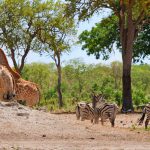 "My son was 17 when we booked his trip to South Africa as part of his Gold Duke of Edinburgh award. I just wanted to let you know what an amazing time he had at the reserve. He loved everything about the trip, had some fantastic experiences and met some lovely people. Thank you so much for helping us along the way. You were able to put our minds at rest and answer our questions. I will d...
"My son was 17 when we booked his trip to South Africa as part of his Gold Duke of Edinburgh award. I just wanted to let you know what an amazing time he had at the reserve. He loved everything about the trip, had some fantastic experiences and met some lovely people. Thank you so much for helping us along the way. You were able to put our minds at rest and answer our questions. I will d... Got a question or want to chat to Project Manager Kate who has first-hand experience of the project? Call +44 (0) 1892 771 973or email: – [email protected].







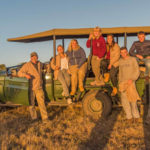 "
"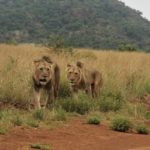 "Just back from an incredible experience at the game reserve in South Africa. I had two weeks over there and definitely wish I’d gone for longer. As I’m 17 I was one of the youngest in the group of volunteers but that didn’t matter at all because everyone was really welcoming and we had lots of fun. The accommodation and food was all great and I did lots of different activities across the two weeks all across the reserve. The staff at the reserve were all really friendly and helpful, and they helped booking weekend activities for me which was an amazing bungee jump. The My Oyster portal was really helpful before I went as it gave me so much information and Kate was great at making sure I had all the right paperwork as I was classed as a minor travelling alone. I would love to do a similar experience again in the future and would use Oyster again as they made the organisation of it all so easy."
"Just back from an incredible experience at the game reserve in South Africa. I had two weeks over there and definitely wish I’d gone for longer. As I’m 17 I was one of the youngest in the group of volunteers but that didn’t matter at all because everyone was really welcoming and we had lots of fun. The accommodation and food was all great and I did lots of different activities across the two weeks all across the reserve. The staff at the reserve were all really friendly and helpful, and they helped booking weekend activities for me which was an amazing bungee jump. The My Oyster portal was really helpful before I went as it gave me so much information and Kate was great at making sure I had all the right paperwork as I was classed as a minor travelling alone. I would love to do a similar experience again in the future and would use Oyster again as they made the organisation of it all so easy."
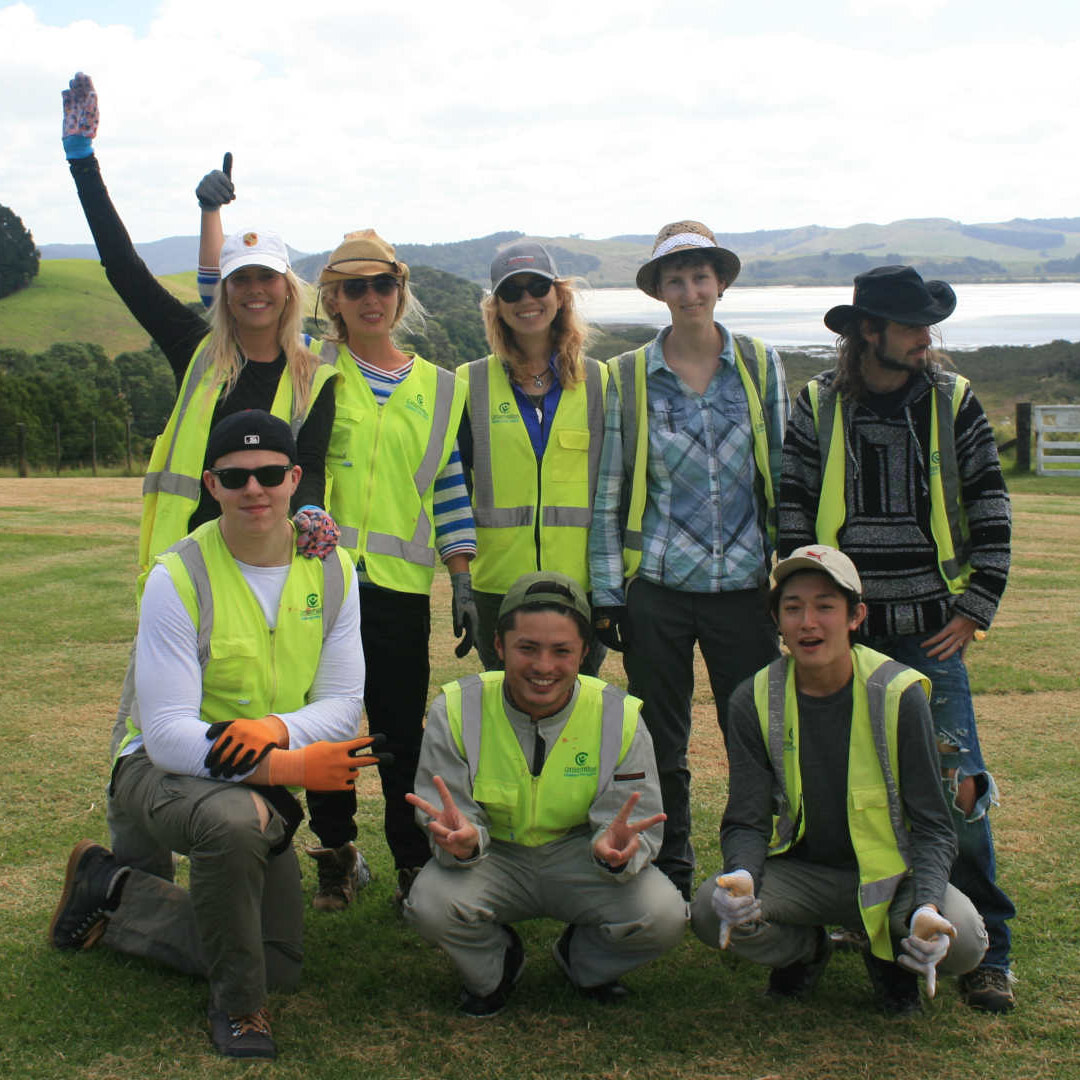 "Jacks mum here. He has already done so much on the reserve, made lots of friends, done loads of different things. His high points last week were the game drives and also loved clearing all the trees with a machete! 😂 He had an amazing weekend travelling across to Jeffreys Bay and staying in a surfers backpacking hostel and then travelled to do the world's highest bridge bungee jump. I was both worried and proud at the same time when he sent me the video.
I heard from him today that he had been to a school in a local township and as a group they bought the kids food and made them lunch then played with them and he bought them a football. He said it was an amazing experience.
It's safe to say that this has been a real experience for him and a real eye opener. I already have my youngest asking to do something similar so I've said he can when he's 17 too so we'll definitely be using Oyster again as the whole thing has been so well organised and given Jack such a great time - thank you for this!"
"Jacks mum here. He has already done so much on the reserve, made lots of friends, done loads of different things. His high points last week were the game drives and also loved clearing all the trees with a machete! 😂 He had an amazing weekend travelling across to Jeffreys Bay and staying in a surfers backpacking hostel and then travelled to do the world's highest bridge bungee jump. I was both worried and proud at the same time when he sent me the video.
I heard from him today that he had been to a school in a local township and as a group they bought the kids food and made them lunch then played with them and he bought them a football. He said it was an amazing experience.
It's safe to say that this has been a real experience for him and a real eye opener. I already have my youngest asking to do something similar so I've said he can when he's 17 too so we'll definitely be using Oyster again as the whole thing has been so well organised and given Jack such a great time - thank you for this!"
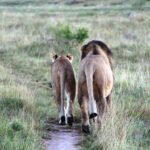 This is an incredible experience. I've met some amazing people, I'm now extending my stay to explore Cape Town which is also incredible! From the moment I enquired to the moment I returned my project manager Georgie has been so helpful. I will for sure book another trip with you soon. Thank you! "
This is an incredible experience. I've met some amazing people, I'm now extending my stay to explore Cape Town which is also incredible! From the moment I enquired to the moment I returned my project manager Georgie has been so helpful. I will for sure book another trip with you soon. Thank you! "
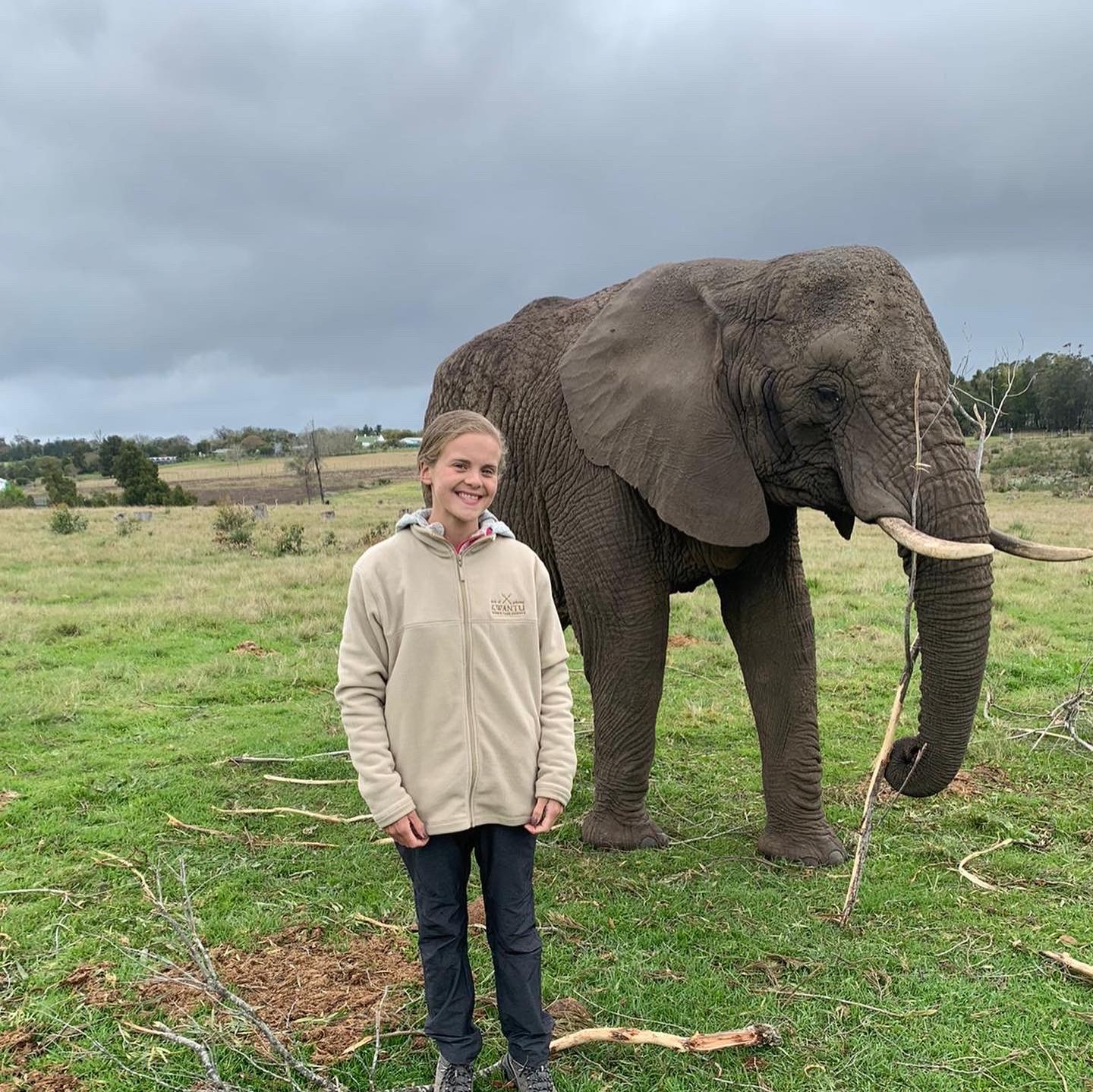 "The project offers a great way to see lots of animals up close because you are out on the reserve everyday. It’s hard to see all the animals on one drive but because you are out so much it’s likely that you’ll get to see everything at some point. I think it’s the best way to do safari. And about the Garden Route Tour, I recommended that everyone should finish their trip off with the tour if they are able too. You get to do a lot of great activities and the tour guide was excellent."
"The project offers a great way to see lots of animals up close because you are out on the reserve everyday. It’s hard to see all the animals on one drive but because you are out so much it’s likely that you’ll get to see everything at some point. I think it’s the best way to do safari. And about the Garden Route Tour, I recommended that everyone should finish their trip off with the tour if they are able too. You get to do a lot of great activities and the tour guide was excellent."
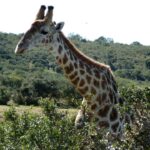 "My first week has been great and I’ve been able to experience far more than I ever expected I would. It’s been great getting to meet new people and see a wide range of animals. Thank you for a your support with getting me here. All the information given to me such as the packing list and overview information was very helpful."
"My first week has been great and I’ve been able to experience far more than I ever expected I would. It’s been great getting to meet new people and see a wide range of animals. Thank you for a your support with getting me here. All the information given to me such as the packing list and overview information was very helpful."
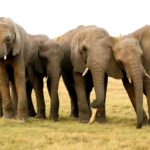 "Just wanted to thank you very much for all your help with my queries and let you know that Michael and his friend Kyle had a wonderful time in South Africa - memories made that will last a lifetime and made friends from all over the world. Oyster Worldwide Big 5 SA was fantastic thanks from a grateful mum!"
"Just wanted to thank you very much for all your help with my queries and let you know that Michael and his friend Kyle had a wonderful time in South Africa - memories made that will last a lifetime and made friends from all over the world. Oyster Worldwide Big 5 SA was fantastic thanks from a grateful mum!"
 "I had an amazing time at the game reserve it was a great experience.The facilities were excellent with great food and the staff were all extremely friendly and would sort out any queries in a flash. I am now spending a week surfing in Jefferys Bay before finishing my trip with a week in Cape Town!"
"I had an amazing time at the game reserve it was a great experience.The facilities were excellent with great food and the staff were all extremely friendly and would sort out any queries in a flash. I am now spending a week surfing in Jefferys Bay before finishing my trip with a week in Cape Town!"
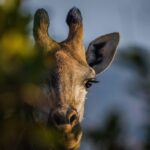 " I'm really fine! The people here, both the volunteers and the staff, are so kind and nice all the time. The activities are also fun and I could already spend time with the vet, what is absolutely amazing! Very happy to be here, really enjoying it."
" I'm really fine! The people here, both the volunteers and the staff, are so kind and nice all the time. The activities are also fun and I could already spend time with the vet, what is absolutely amazing! Very happy to be here, really enjoying it."
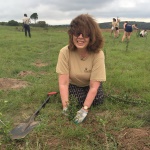 "I wanted to say how much I enjoyed this trip and I wanted to thank you for that. It was a fabulous experience and if you plan to run another 40+ programme there next year, I would definitely love to participate again"
"I wanted to say how much I enjoyed this trip and I wanted to thank you for that. It was a fabulous experience and if you plan to run another 40+ programme there next year, I would definitely love to participate again"
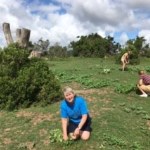 "I'm loving it here and so glad I came. Personally I don't want to leave! Thanks for everything."
"I'm loving it here and so glad I came. Personally I don't want to leave! Thanks for everything."
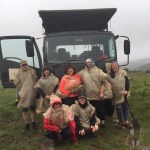 "Just want to send a personal thank you for all your help in this amazing journey I went on and for the absolutely fabulous experience it gave me.
I have returned with such a passion to do more of this and am looking at opportunities in the uk to bide me over until I can look to enroll on another trip next year with yourselves. Thank you once again for all your help with this trip."
"Just want to send a personal thank you for all your help in this amazing journey I went on and for the absolutely fabulous experience it gave me.
I have returned with such a passion to do more of this and am looking at opportunities in the uk to bide me over until I can look to enroll on another trip next year with yourselves. Thank you once again for all your help with this trip."
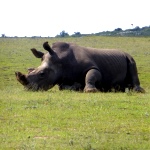 "The whole experience was amazing so it has been hard to pick highlights but I think that the morning drive seeing the sunrise over the horizon and the cactus chopping was so fun and they are probably my favourite two moments. The other volunteers I met were fun and positive with stories to share about their experiences and the rangers were knowledgeable, passionate and inspiring people. "
"The whole experience was amazing so it has been hard to pick highlights but I think that the morning drive seeing the sunrise over the horizon and the cactus chopping was so fun and they are probably my favourite two moments. The other volunteers I met were fun and positive with stories to share about their experiences and the rangers were knowledgeable, passionate and inspiring people. "
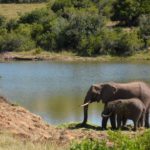 "Georgie was very helpful and was always quick with responding to my emails if I had any queries. I had a slight problem with my flights and Georgie was so quick and efficient when sorting this for me, I am very grateful!"
"Georgie was very helpful and was always quick with responding to my emails if I had any queries. I had a slight problem with my flights and Georgie was so quick and efficient when sorting this for me, I am very grateful!"
 "I’m having the best time ever! The staff are so knowledgeable and helpful, and everyone is so kind and friendly. The accommodation is so nice. The lions in the rehab centre roar pretty much all night but I’m used to it now. The food is delicious, I’m vegetarian and I was a little worried about that but there is always a veggie option which is brilliant. So all in all I'm loving every second!"
"I’m having the best time ever! The staff are so knowledgeable and helpful, and everyone is so kind and friendly. The accommodation is so nice. The lions in the rehab centre roar pretty much all night but I’m used to it now. The food is delicious, I’m vegetarian and I was a little worried about that but there is always a veggie option which is brilliant. So all in all I'm loving every second!"
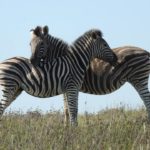 "I loved seeing the amazing wildlife native to Africa, meeting very friendly new people, working as a team, being able to experience South Africa
at the weekends"
"I loved seeing the amazing wildlife native to Africa, meeting very friendly new people, working as a team, being able to experience South Africa
at the weekends"
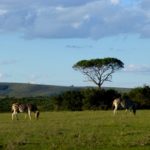 "It was amazing and I loved every second! Lived up and beyond expectations so thank you for everything you did to get me on the programme!! A week is 100% too short so I’ll be going back to South Africa in the near future to travel around it! Many thanks again, I’ll be sure to recommend oyster world to friends and family :)"
"It was amazing and I loved every second! Lived up and beyond expectations so thank you for everything you did to get me on the programme!! A week is 100% too short so I’ll be going back to South Africa in the near future to travel around it! Many thanks again, I’ll be sure to recommend oyster world to friends and family :)"
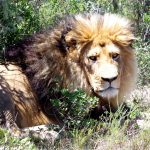 "Everything has been great so far! Very full on and always something interesting to do! I went to Plettenberg Bay with a couple of the other volunteers this weekend, and I have been cutting up cacti and trees and going on game drives!"
"Everything has been great so far! Very full on and always something interesting to do! I went to Plettenberg Bay with a couple of the other volunteers this weekend, and I have been cutting up cacti and trees and going on game drives!"
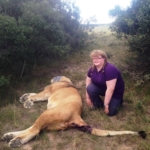 "I've had an absolutely amazing experience and would have been happy to stay here all year!"
"I've had an absolutely amazing experience and would have been happy to stay here all year!"
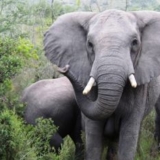 "This programme matched completely with the expectations I had for this holiday. The information is fully complete so I could chose the right programme. The facilities for the volunteers are well maintained, the food is homemade and the activities are varied. And of course being able to be on game drives as often as this was great."
"This programme matched completely with the expectations I had for this holiday. The information is fully complete so I could chose the right programme. The facilities for the volunteers are well maintained, the food is homemade and the activities are varied. And of course being able to be on game drives as often as this was great."
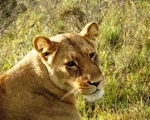 "Everyone who helped me both at home and in Africa was friendly and very helpful, there was plenty of information about the trip in 'My Oyster'. I felt confident that I was prepared before my trip which was great for both me but also for my parents. For me the highlights were making a great group of friends from around the world and it was incredible to be so close to wild animals. Weekend trips were also great"
"Everyone who helped me both at home and in Africa was friendly and very helpful, there was plenty of information about the trip in 'My Oyster'. I felt confident that I was prepared before my trip which was great for both me but also for my parents. For me the highlights were making a great group of friends from around the world and it was incredible to be so close to wild animals. Weekend trips were also great"
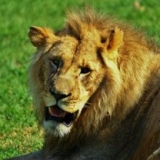 "The packet I received beforehand had all the information that I needed and it also accurately talked about the activities we would be doing while away. Georgie from Oyster was very helpful and very quick to reply to any concerns. The "My Oyster" portal was an awesome way of keeping all the information in one place."
"The packet I received beforehand had all the information that I needed and it also accurately talked about the activities we would be doing while away. Georgie from Oyster was very helpful and very quick to reply to any concerns. The "My Oyster" portal was an awesome way of keeping all the information in one place."
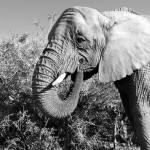 "The trip was amazing, and it was brilliant to see the animals within the reserve. Staff were very friendly and welcoming. Anne was so helpful, I cannot thank her enough. She answered any questions I had very quickly and was there to help when I needed her. Regular contact was needed for a first trip alone. It was amazing and 2 weeks went way too fast. I am planning on booking again next year for the game ranger course! Thank you again Oyster."
"The trip was amazing, and it was brilliant to see the animals within the reserve. Staff were very friendly and welcoming. Anne was so helpful, I cannot thank her enough. She answered any questions I had very quickly and was there to help when I needed her. Regular contact was needed for a first trip alone. It was amazing and 2 weeks went way too fast. I am planning on booking again next year for the game ranger course! Thank you again Oyster."
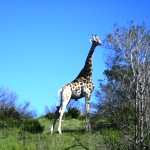 "It's amazing here! I can't wait to come back in a few years for a longer time! I want to look at more oyster projects for next summer already!"
"It's amazing here! I can't wait to come back in a few years for a longer time! I want to look at more oyster projects for next summer already!"
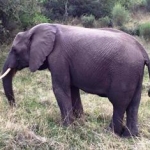 "It was the perfect way to experience life in an African wildlife reserve by volunteering. You work hard in the day and get rewarded with a game drive in the afternoon and it feels very fulfilling knowing that you are not only enjoying the reserve but also helping to maintain its environment. I met many lovely volunteers there as well which I will definitely keep in touch for many years to come."
"It was the perfect way to experience life in an African wildlife reserve by volunteering. You work hard in the day and get rewarded with a game drive in the afternoon and it feels very fulfilling knowing that you are not only enjoying the reserve but also helping to maintain its environment. I met many lovely volunteers there as well which I will definitely keep in touch for many years to come."
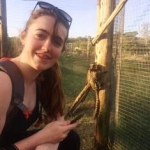 "I couldn't have had a better experience, I had the time of my life at the game reserve. I knew I was going to enjoy the trip but I never expected to be so excited each morning at the thought of seeing something new, there's no way I could ever get bored of it. Going through Oyster meant a lot less stress for me when organising this project as the quality of the information on the programme made it easier to prepare. Thank you for providing me with this opportunity and helping to organise it!"
"I couldn't have had a better experience, I had the time of my life at the game reserve. I knew I was going to enjoy the trip but I never expected to be so excited each morning at the thought of seeing something new, there's no way I could ever get bored of it. Going through Oyster meant a lot less stress for me when organising this project as the quality of the information on the programme made it easier to prepare. Thank you for providing me with this opportunity and helping to organise it!"
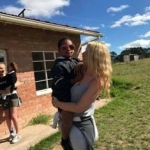 "My trip was absolutely amazing! Everyone out there was just so lovely and friendly - I couldn't have hoped to work with a better bunch of people. And being able to go out and do things at the weekend was brilliant. The 3 weeks went by far too quickly. I could easily of stayed for another 3 weeks. I'm already thinking of going back to do the Garden Route next year maybe. Thank you so much for all your help with my trip. It's definitely been a once in a lifetime experience!"
"My trip was absolutely amazing! Everyone out there was just so lovely and friendly - I couldn't have hoped to work with a better bunch of people. And being able to go out and do things at the weekend was brilliant. The 3 weeks went by far too quickly. I could easily of stayed for another 3 weeks. I'm already thinking of going back to do the Garden Route next year maybe. Thank you so much for all your help with my trip. It's definitely been a once in a lifetime experience!"
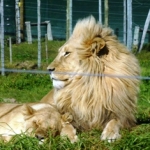 "I had an amazing time. I enjoyed pretty much all of the activities and met some great people! The 4 weeks went by so quickly and I did feel sad to leave, so yes, I am missing life there. I would love to go back one day and maybe do the Game Ranger course. Thank you so much for managing my trip. it was one of the most enjoyable experiences of my life!"
"I had an amazing time. I enjoyed pretty much all of the activities and met some great people! The 4 weeks went by so quickly and I did feel sad to leave, so yes, I am missing life there. I would love to go back one day and maybe do the Game Ranger course. Thank you so much for managing my trip. it was one of the most enjoyable experiences of my life!"
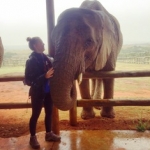 "My trip was incredible. The people I volunteered with were great - it was so crazy to meet all these people from around the world that I would have never met otherwise. I have been keeping in touch with them since I left, along with some of those from the reserve as well! I think the thing I loved the most is that I got to go to an amazing place that I have never been to before, and it is like a vacation, but I felt useful while I was there, and felt like I was making somewhat of a difference."
"My trip was incredible. The people I volunteered with were great - it was so crazy to meet all these people from around the world that I would have never met otherwise. I have been keeping in touch with them since I left, along with some of those from the reserve as well! I think the thing I loved the most is that I got to go to an amazing place that I have never been to before, and it is like a vacation, but I felt useful while I was there, and felt like I was making somewhat of a difference."
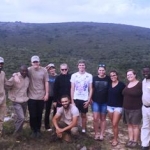 "Game drives and game counts were always a highlight as it was the best opportunity to see the animals! I also thoroughly enjoyed the school feeding activity as interacting with the local community was great fun."
"Game drives and game counts were always a highlight as it was the best opportunity to see the animals! I also thoroughly enjoyed the school feeding activity as interacting with the local community was great fun."
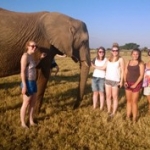 "My highlights were waking up to the lions every morning, going on night and evening game drives, meeting the elephants and doing the sky dive."
"My highlights were waking up to the lions every morning, going on night and evening game drives, meeting the elephants and doing the sky dive."
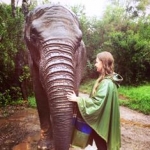 "Everyone was treating us very nicely and the accommodation was more luxurious than I have expected. Thank you so much for your support and for making this experience possible."
"Everyone was treating us very nicely and the accommodation was more luxurious than I have expected. Thank you so much for your support and for making this experience possible."
 "Making loads of new friends and seeing the animals up close was a highlight, as was knowing that I was genuinely helping and making a difference. Tree chopping was one of the most enjoyable activities! You will have loads of fun while making a difference. It will look great on your CV."
"Making loads of new friends and seeing the animals up close was a highlight, as was knowing that I was genuinely helping and making a difference. Tree chopping was one of the most enjoyable activities! You will have loads of fun while making a difference. It will look great on your CV."
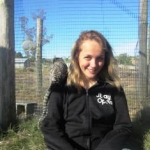 "The whole process was much easier than I expected, as was the variety of things done on my project. Seeing animals roam freely in the wild and having a feeling that I had helped to make a difference and to put back into the community. It really is a once in a life time opportunity, that gives you such a great experience, not only in land work and conservation, but in meeting new people and experiencing different cultures. This project personally gave me confidence that I haven't gained anywhere else."
"The whole process was much easier than I expected, as was the variety of things done on my project. Seeing animals roam freely in the wild and having a feeling that I had helped to make a difference and to put back into the community. It really is a once in a life time opportunity, that gives you such a great experience, not only in land work and conservation, but in meeting new people and experiencing different cultures. This project personally gave me confidence that I haven't gained anywhere else."
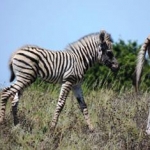 "I actually love this country and don't want to leave. Everyone is so happy and friendly that it's infectious! The activities are fun and the food is great- I haven't eaten this healthily in years. A big group of us went to Jeffrey's bay this weekend and it was so much fun. I surfed for the first time and went horse riding on the beach."
"I actually love this country and don't want to leave. Everyone is so happy and friendly that it's infectious! The activities are fun and the food is great- I haven't eaten this healthily in years. A big group of us went to Jeffrey's bay this weekend and it was so much fun. I surfed for the first time and went horse riding on the beach."
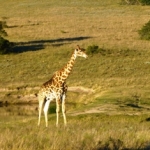 "Honestly the best thing I have ever done! Although I am a confident person, coming back from this trip had made me realise what I am capable of. The people I have met on the reserve, and the other volunteers, have been incredible, and I'm very grateful to have met them. The hands on experience of helping the conservation programme was more than what I expected. I highly recommend Oyster and their projects."
"Honestly the best thing I have ever done! Although I am a confident person, coming back from this trip had made me realise what I am capable of. The people I have met on the reserve, and the other volunteers, have been incredible, and I'm very grateful to have met them. The hands on experience of helping the conservation programme was more than what I expected. I highly recommend Oyster and their projects."
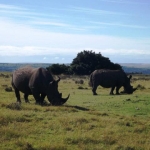 "The highlight for me was, of course, being able to see some of South Africa's amazing animals.However there were many aspects that I enjoyed, from the independence of travelling alone, experiencing a completely different country, and for sure meeting all the amazing people at the reserve! The experience will be gone before you know it - the more effort you put into the trip, the more rewarded you feel when it's time to go home. I couldn't have had a better time - best decision of my life."
"The highlight for me was, of course, being able to see some of South Africa's amazing animals.However there were many aspects that I enjoyed, from the independence of travelling alone, experiencing a completely different country, and for sure meeting all the amazing people at the reserve! The experience will be gone before you know it - the more effort you put into the trip, the more rewarded you feel when it's time to go home. I couldn't have had a better time - best decision of my life."
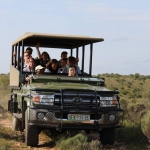
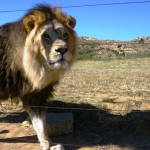
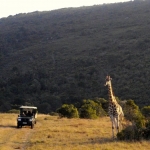
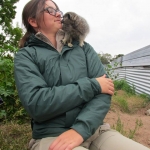
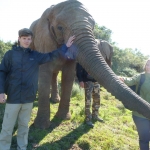
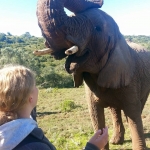
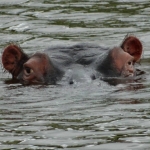
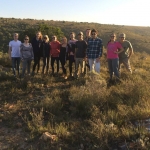
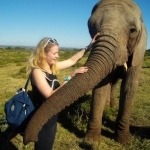
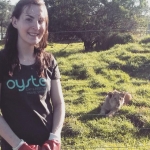
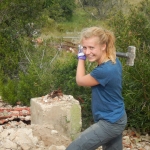
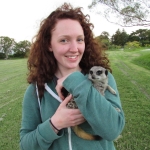
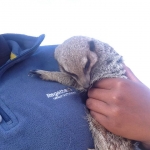
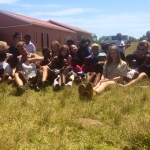
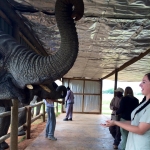
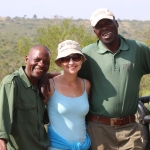
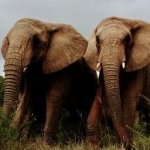 "This project was amazing. I learnt so much and feel privileged to have been part of this. It really does give you the best life experiences and puts everything in to perspective. I'm so glad I did it and would definitely recommend it! The reserve is smaller than Kruger or Addo, which means you really get to know the rangers, animals and the whole reserve starts to feel like home. It's prepared me for my future travelling too!"
"This project was amazing. I learnt so much and feel privileged to have been part of this. It really does give you the best life experiences and puts everything in to perspective. I'm so glad I did it and would definitely recommend it! The reserve is smaller than Kruger or Addo, which means you really get to know the rangers, animals and the whole reserve starts to feel like home. It's prepared me for my future travelling too!"
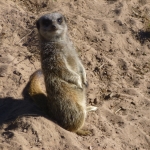
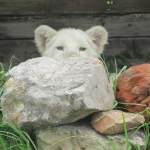
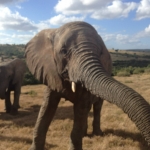
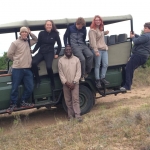
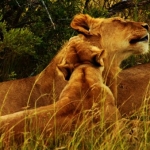 "I had the most amazing time in South Africa - the only downside was that I was there for only two weeks! The staff were all so lovely and helpful. The accommodation was so much nicer than I expected - it was like a proper hotel but with ten beds to a room! I met so many lovely people from all over the world and some of us have kept in touch. And the animals were fantastic! Thank you so much for all the help"
"I had the most amazing time in South Africa - the only downside was that I was there for only two weeks! The staff were all so lovely and helpful. The accommodation was so much nicer than I expected - it was like a proper hotel but with ten beds to a room! I met so many lovely people from all over the world and some of us have kept in touch. And the animals were fantastic! Thank you so much for all the help"
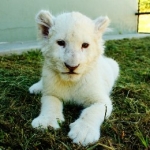 "I had good time in South Africa and I am missing my little balls of fluff haha. I enjoyed the work I did and the rangers were nice. You as well were extremely helpful in the run up to the trip, and I was so prepared due to the information you sent me."
"I had good time in South Africa and I am missing my little balls of fluff haha. I enjoyed the work I did and the rangers were nice. You as well were extremely helpful in the run up to the trip, and I was so prepared due to the information you sent me."
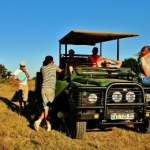 "I had a incredible time in South Africa, and I'm already missing the friends I made out there!"
"I had a incredible time in South Africa, and I'm already missing the friends I made out there!"
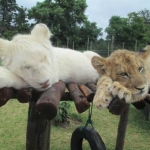 "I saw many amazing animals and got to do lots of things I wouldn’t normally have done, such as cub sitting! The work could be hard, but was always rewarding. I really enjoyed my time here. All the staff and rangers were really friendly and knew lots about the wildlife and environment. The food was amazing and the rooms were always clean. The weeks have gone really quickly!"
"I saw many amazing animals and got to do lots of things I wouldn’t normally have done, such as cub sitting! The work could be hard, but was always rewarding. I really enjoyed my time here. All the staff and rangers were really friendly and knew lots about the wildlife and environment. The food was amazing and the rooms were always clean. The weeks have gone really quickly!"
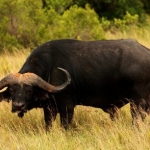 "This was everything I wanted and even more. For me it was a life changing experience which really opened my eyes to animal conservation and the damage humans cause to the environment, and also to how other people live. Getting so close to wild animals, and watching them in the natural habitat, was something I always wanted to do. I would like to thank everyone for the best 2 weeks of my life!"
"This was everything I wanted and even more. For me it was a life changing experience which really opened my eyes to animal conservation and the damage humans cause to the environment, and also to how other people live. Getting so close to wild animals, and watching them in the natural habitat, was something I always wanted to do. I would like to thank everyone for the best 2 weeks of my life!"
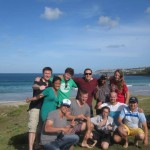
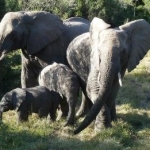 “I have just got back from 3 weeks volunteering in South Africa with the Big 5, all organised by Oyster, and absolutely loved it! It was such an amazing, rewarding experience and I just wish I could have stayed for longer! We got so up close to the Big 5 it was surreal! We took part in everything from game captures, to feeding the lions, to monitoring elephants, to interacting with a baby white lion cub!!”
“I have just got back from 3 weeks volunteering in South Africa with the Big 5, all organised by Oyster, and absolutely loved it! It was such an amazing, rewarding experience and I just wish I could have stayed for longer! We got so up close to the Big 5 it was surreal! We took part in everything from game captures, to feeding the lions, to monitoring elephants, to interacting with a baby white lion cub!!”
